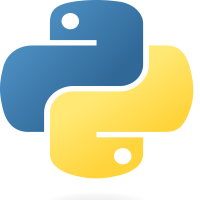
Python - Functions
01-Feb-2024Delve into the world of functions in Python. Learn how to define functions, work with function parameters, and understand the significance of functions as reusable code blocks.
Introduction
Functions in Python are reusable blocks of code that perform a specific task. This documentation provides a comprehensive overview of creating, defining, and using functions in Python, with a specific focus on understanding function arguments.
Function Definition
The basic syntax for defining a function in Python is as follows:
# Example: Function definition
def function_name(parameters):
# Functions Body
return result
- 'def' keyword is used to define a function.
- function_name is the user-defined name of the function.
- parameters are optional inputs that the function can take.
- return statement specifies the value the function returns.
Function Arguments
Positional Arguments
A function receives positional arguments in the order in which they are defined. The right amount and sequence of parameters must be sent when calling the function.
# Function with positional argumentsdef add_numbers(x, y):
# Function body result = x + y
print("Sum:", result)
# Calling the function with positional arguments add_numbers(3, 5)
Keyword Arguments
The parameter names are supplied along with keyword arguments, which let you set the values for individual parameters in any order.
# Calling the function with keyword arguments add_numbers(y = 5, x = 3)
Default Parameters
Functions can have default parameter values, which are used if the argument is not explicitly provided.
# Function with positional argumentsdef add_numbers(x=5, y):
# Function body result = x + y
print("Sum:", result)
# Calling the function without providing the value of x (will use default ) add_numbers(3)
Variable-Length Arguments
Functions can accept a variable number of arguments using *args for positional arguments or **kwargs for keyword arguments.
# Example
def calculate_sum(*args): # Function body
result = sum(args)
print("Sum:", result)
# Calling the Function calculate_sum(1, 2, 3, 4, 5)
Notes
- It is more flexible and user-friendly to understand the many kinds of function arguments.
- You can create sophisticated function design options by combining positional, keyword, default, and variable-length arguments.
Conclusion
Creating flexible and adaptive functions in Python requires an understanding of how to use function parameters. Understanding function arguments enables the writing of elegant and effective code, regardless of the complexity of the task at hand.


